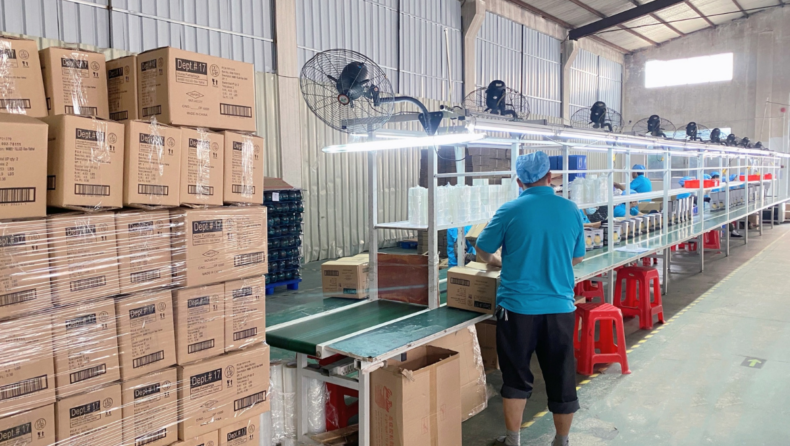Despite some relaxing of the severe domestic COVID- 19 inspections that hit the world’s second-largest frugalness in the alternate quarter, China’s labor growth also slowed, according to the private sector Caixin PMI released on Monday.
Highlights –
- Asia’s manufacturers had trouble getting things moving in July as output was hampered by China’s strict COVID laws and declining global demand.
- The Caixin PMI followed slightly gloomier information from the officially recognized PMI.
- Companies are cutting costs as central banks are rushing to tighten banking laws.
- Separate trade data issued on Monday show that South Korean exports expanded at a faster rate in July due to robust demand from the United States.
TOKYO: In July, Asia’s manufacturers struggled to get things going as China’s tough COVID regulations and waning global demand slowed production. However, early indications that the red-hot economy may be reaching its peak have given those businesses that have been hurt by pricing some hope.
Several purchasing directors’ indicators (PMI) for July, which were announced on Monday, revealed a decline in new orders at manufacturing startups in the area, notably at IT giants in northeast Asia.

Plant output in South Korea decreased for the first time in over two years, while patient force chain dislocations caused Japan’s plant output to expand at the slowest rate it has in 10 months.
Despite some relaxing of the tight domestic COVID-19 inspections that blasted the world’s second-largest frugalness in the alternate quarter, the private sector Caixin PMI revealed on Monday that China’s labor growth also slowed.
Bleaker data from the officially recognized PMI
The Caixin PMI came after somewhat gloomier data from the officially sanctioned PMI, which was published on Sunday and revealed that effort had abruptly dropped in July amid new COVID-19 breakouts.
Usamah Bhatti, an economist at S&P Global Market Intelligence, said on the South Korean PMI: “Advanced prices for inputs including energy, essential, and semiconductors meant that the disruption was broad-based across the (South Korean) manufacturing sector.”
Despite cost affectation continuing to be far above the long-term average, the pace of input price affectation slowed to a four-month low, which may be an indication that pricing pressures have peaked.
The PMI for Taiwan, a hub for the manufacture of semiconductors, saw plant exertion declining at its fastest rate since May 2020, adding to the gloom.

Still, there was some good news for the area: according to PMIs, input price inflation has slowed down in China, Taiwan, and South Korea.
Silver Lining?
Global Business and policymakers are in anguish as a result of the surge in commodity prices, which coincides with supply-chain disruptions brought on by the pandemic and the conflict in Ukraine.
Central banks are scrambling to tighten financial regulations, while firms are slashing expenses.
According to separate trade statistics released on Monday, South Korea’s exports increased at an accelerated rate in July as strong demand from the United States offset subpar agreements with China.
The situation in Southeast Asia as a whole was positive as well, with PMIs indicating a salvo of activity increase in Indonesia, Malaysia, and Thailand, where new orders growth defied decreases observed elsewhere in the region.

The readings from Asia come before plant inspections that are scheduled to be released later in the day from the UK, eurozone, and the United States, which are expected to reveal mixed circumstances in the major industrialized nations of the globe.
Read More – IT sector’s white-collar job market slowed in July – Asiana Times













